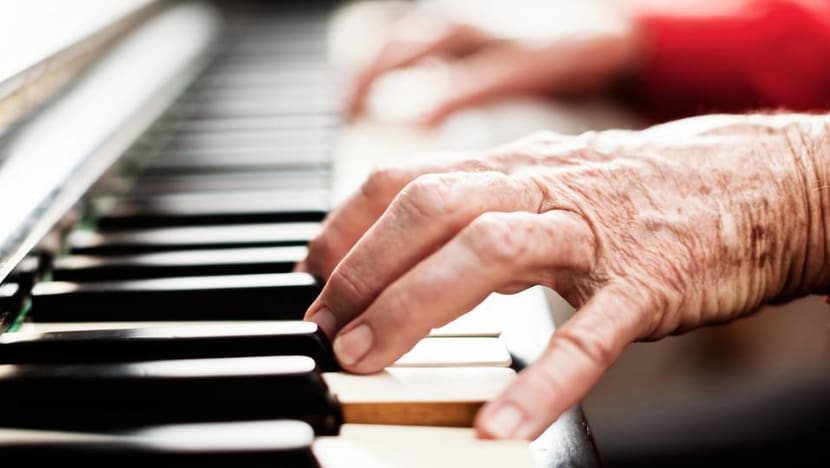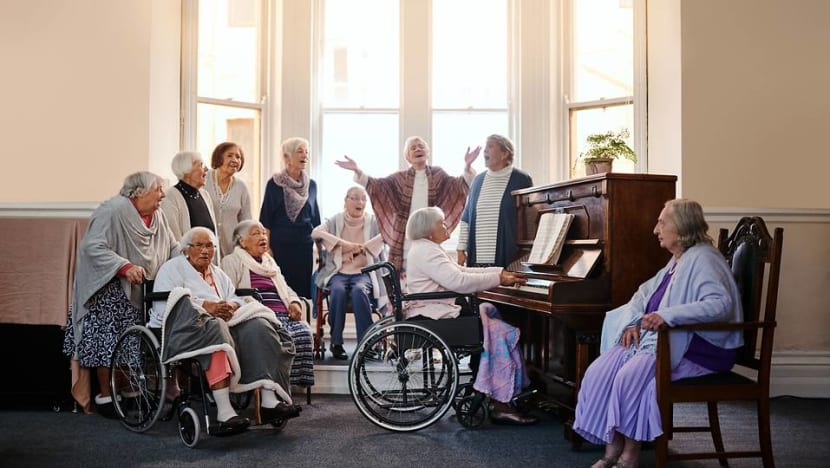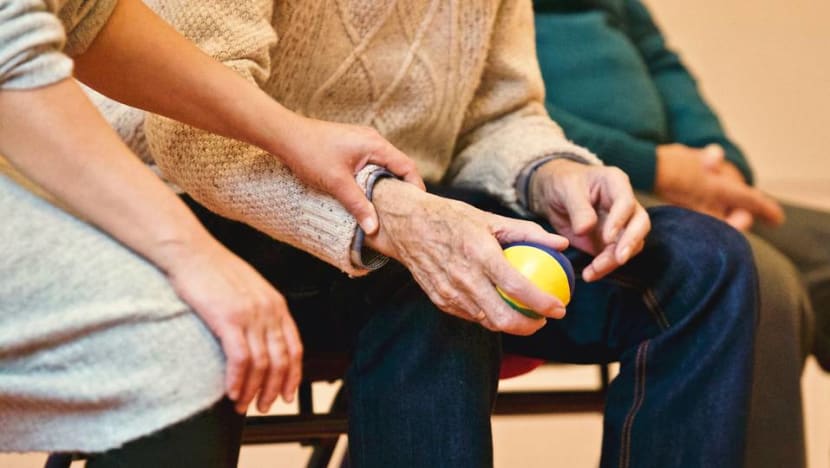Commentary: Music, a powerful medium that can move the memory of people with dementia
One of the most devastating aspects of dementia is that an individual loses precious memory and with that, their identity. But music can be a balm even to the most despondent, says a music therapist.

Music helps with both mood and memory. (Photo: iStock/RapidEye)
SINGAPORE: In the movie The Father, Oscar-winner Anthony Hopkins plays a man who slowly loses his grip on reality as his memory goes.
In the story, music plays an important role in his fast-deteriorating condition. In one scene he comes alive as he sings and tap dances.
While Sir Hopkins is an actor playing a part, I see patients like the character he portrayed. Amil* is a patient of mine who is affectionate and cheerful, but during her down moments, she would cry out for her daughter.
READ: Better mental health awareness among seniors, but more can be done, say experts
But, one thing would lift her mood – when she attends the music therapy sessions in Dover Park Hospice, familiar songs like Burung Kakak Tua make her smile.
For Amil, such songs bring her back to her youth where she recalls taking part in dance competitions. When the song plays, her body and hands would move rhythmically with the music.
It is almost like a reflex response from muscle memory triggered by music. As her condition deteriorated, Amil started speaking less. But the moment a familiar song came up, she would light up and sing along.
MUSIC HELPS WITH MOOD AND MEMORY
Music is a natural non-pharmaceutical approach for persons with dementia. As cognitive and verbal skills decline with the progression of dementia, those with the disease may not be able to communicate their needs effectively.
Due to difficulty in expressing their unmet needs, patients can get agitated and make repeated requests. To cope with this, medication is at times given in aged care facilities but there are possible side effects.
Psychotropic medication such as antipsychotics drugs given can commonly cause drowsiness and impair quality of life.

But increasingly, studies show that non-pharmaceutical approaches such as music therapy, art therapy can benefit patients with dementia.
Results from a study in 2013 by Scandinavian researchers showed that the six weeks of music therapy intervention reduced agitation disruptiveness and prevented medication increment in people with dementia.
READ: Commentary: Unkind COVID-19 related comments targeted at the elderly are counter-productive
In another study with patients with severe dementia in Japan, music was found to reduce stress in the patients and improve quality of life. Interventions used were based on individualised music, selected to elicit pleasant memories and evoke positive emotions.
In our line of work, we see that music can bring comfort to patients.
Researchers have found that melody, even lyrics, can stick in our memory for a long time because the part of our brain that stores musical memory is preserved despite diseases like Alzheimer’s disease. In other words, our long-term “autobiographical” memory is less affected by such neurological diseases.
Autobiographical memory includes self-referential memories such as location of house and episodic memories of events like a wedding day.
This is also why we remember our favourite songs and can sing them by heart, no matter how old we are.
This works in patients with dementia too – songs from their younger years reminds them of their loved ones.
In our patients, it triggers memory. While they may forget where they are, or cannot recognise the people in their life, they can remember lyrics to a song they know. And in doing so, it gives them a sense of meaning and assurance they are safe.
THERAPEUTIC BENEFITS
Singing and playing percussions is an experience that persons with dementia can easily share together with others. It is not physically demanding. It also taps on the resources of the individuals such as their long-term memory.

Most importantly, it is the act of doing something which promotes a sense of belonging.
READ: Commentary: You don’t have to age and grow frail alone. Nurses have your back
I remember a patient who hardly spoke, and due to COVID-19, her family based overseas could not visit.
During a video call with her family, her young grandchildren picked the song Twinkle Twinkle Little Star to sing to her.
While playing guitar for them, I saw this patient light up in response to their voices. Soon she started singing along and raised her hands, opening and closing her palms like a star.
For persons with dementia, music is a powerful motivator for engagement that also encourages movement.
Music can be a means for them to channel and expend energy in a natural way, giving them opportunity to be creative and be themselves. Music can also maintain muscle memory to some extent.
I remember instances of patients retaining the ability to play instruments, or even doing “air guitar” at the sound of the guitar.
In effect, there is an automatic synchronisation of neural activity, physical movement, as well as one’s heart and respiratory rate with the rhythmic cues in music.
Mostly, music is a great lifter of moods. In music therapy, we encourage patients to choose what kind of music they would like to hear.
A common principle is meeting the mood of the person in that moment. For example, while slow, calming music is typically chosen for relaxation, there was an instance in music therapy where a patient chose loud and fast piano music instead. This music for him was cathartic.
READ: Commentary: An elderly public housing project is a game-changer but mindsets still need shifting
He spoke of feeling relaxed and happy after listening to it. Likewise, a happy sounding song may or may not suit someone feeling down. This is why making a personalised playlist can be useful in the care of patients with dementia. We all have individual tastes in music.
SELF-REGULATION AND PAIN RELIEF
We have also found that music is an effective distraction from physical or subjective discomforts.
I remember a patient who used music to regulate her discomforts. She would ring her bell to get my attention, thoughtfully pick music, and explain her choices. Sometimes, she wanted me to play fast songs to fight the drowsiness from medication.
At other times, she would request for slow instrumentals which helped her to relax.
Music can therefore be helpful for psychosomatic pain. This is also an illustration of total pain in palliative care, a concept where pain is not just due to physical reasons, but also from psychological, emotional and spiritual distress.
We all have musical histories. Music reminds us of significant memories, and our identity such as religious faith, or nationality. Individuals with dementia are mothers, fathers, sisters; a person with a history. We can sometimes forget this and focus on their disease.
There are deep losses that dementia brings and the path can be difficult for both patients and their families. But in caring for our loved ones, it is important to see the personhood that is still present.
Music is a conduit to unlocking memories, helping individuals with dementia recall their identity. We also remember who they are, and who we are to each other. And that is what matters most at the end.
*Pseudonyms were used in this commentary.
Camellia Soon is a music therapist at Dover Park Hospice.














